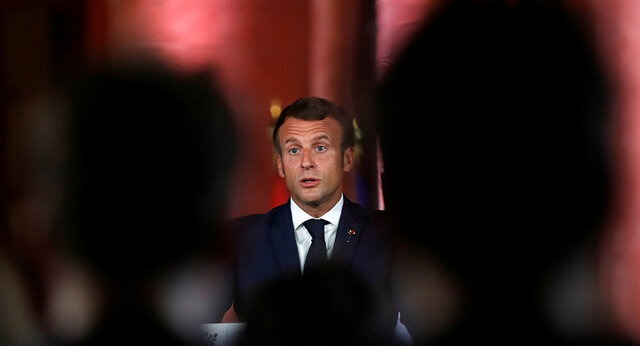Morteza Makki told the Strategic Council on Foreign Relations that Islamophobia has a long history in Europe and especially in France where the first restrictions for Muslim women on wearing Hijab was approved in 2005 and spread to some other European countries.
“The issue of Islamophobia is not something new in France or Europe. France as a country which hosts the largest number of Muslim minority in Europe is a pioneer in building a wave of Islamophobia and fear from Muslims as well as creating restrictions for them in Europe,” he said, referring to the recent remarks by Emanuel Macron in support of insult to Prophet Mohammad (PBUH).
He said that during the past years, Muslims have faced serious restrictions and rises and demises as well as widespread discrimination in France only for being Muslim and against France’s claims of advocating human rights and freedom seekers.
Makki said the French authorities have always tried to justify such discrimination and Islamophobia tendencies within the framework of their secular system as they claim Secularism or Laicite does not allow the emergence of religious symbols in France and for this reason, Muslims in France need to behave and live like other French citizens.
He said such restrictions and discriminatory behaviour are only limited to Muslims, adding that other religious minorities in France such as Jews are free to practice according to their rituals and functions without any restriction and discrimination.
Referring to the power and influence of the Zionist lobby in France, he said many of the Jewish population in France, estimated to be around 600,000 are playing very influential roles in the state of affairs in that country.
Makki said many French politicians and their spouses have familial links with the Jews, encouraging them to support Islamophobic tendencies in France.
Referring to the increasing Islamophobic tendency of French President Macron, he said changes in the political equations in France would bring Macron close to the far radical right.
“At the present time, there is a bipolar current in France which includes the radical moderates and radical right while the moderate right and left have become sidelined. This bipolarity demonstrated itself in 2017 when the moderate right and left parties were isolated due to inefficiency and ill-promises in politics.”
Makki believes that under such circumstances in France, Macron considers himself the leader of the moderate (leaning to the right) camp while Marine Le Pen, the President of the France National Rally is leading the radical right who have extremist views towards Islam and Muslims.
He said Macron has failed to fulfil his promises in economic and social sectors during the past three years, adding that “the French president is trying to prevent his approval rating as well as the moderate radical right camp from declining and that’s why he is stepping up his Islamophobic stances and trying to seize the far right’s Islamophobia campaign so as to increase his chances of winning the 2022 elections.”
Makki explained that the current Islamophobia campaign run by Macron and other European countries would cause a vicious circle of violence, radicalism and terrorist actions in Europe while sowing the seeds of hatred and rampage.
“In the meantime, as France is a host country for migrants and many Muslims are currently residing in France, the spread of fear from Islam would incite the followers of Islam and some Wahhabi-related extremist currents would misuse the opportunity and conduct terrorist attacks to show force to Europe and demonstrate that they remain powerful and influential across Europe in spite of all the developments of the previous years to destroy or weaken the terrorist Takfiri movement.”










0 Comments